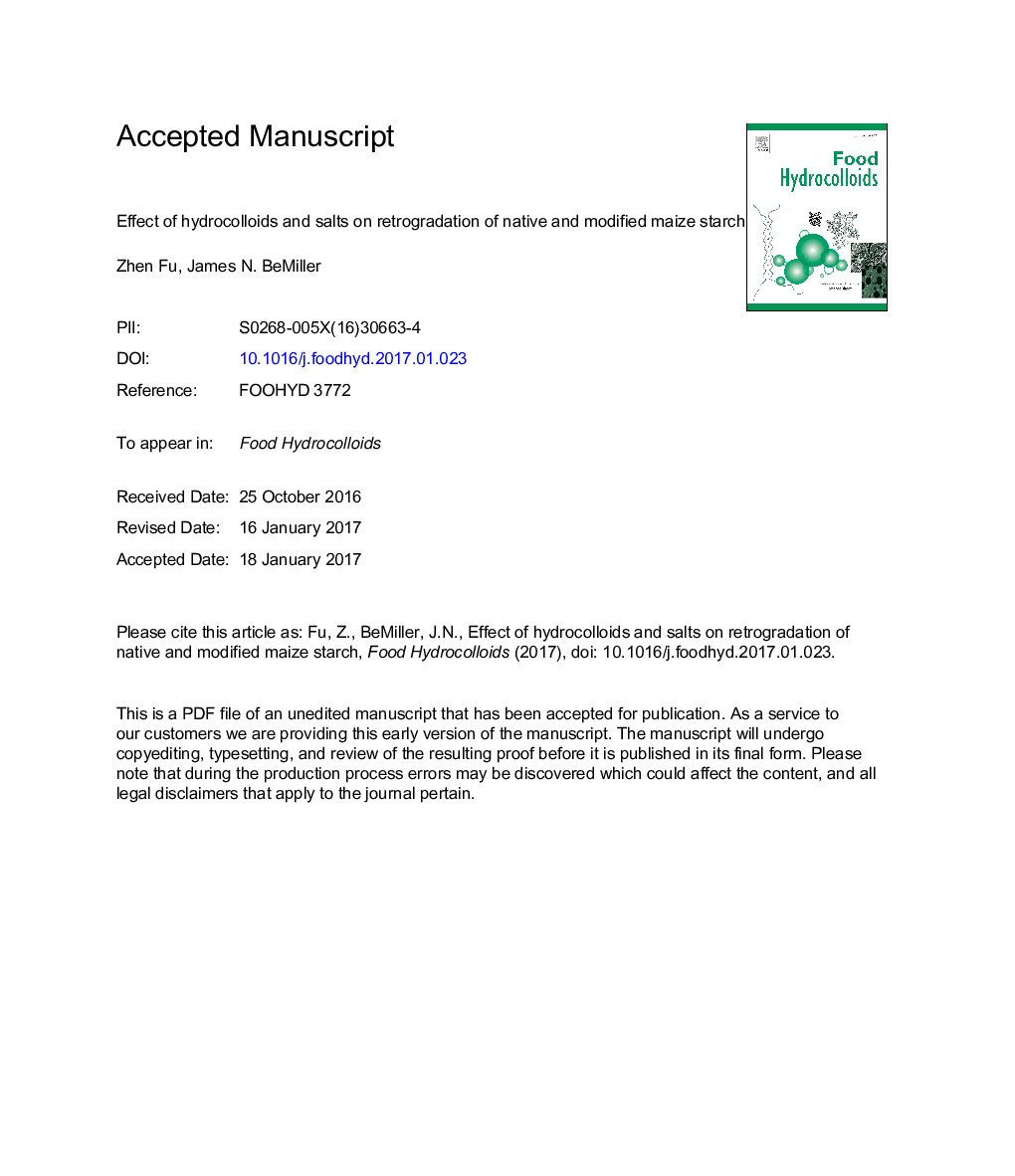| Article ID | Journal | Published Year | Pages | File Type |
|---|---|---|---|---|
| 4983896 | Food Hydrocolloids | 2017 | 44 Pages |
Abstract
Retrogradation of native and hydroxypropylated normal maize starch heated in water in the presence or absence of hydrocolloids or the water-soluble polymer poly (ethylene glycol) was investigated. Results were compared both with the effects of no added hydrocolloid and with the effects of added salts known to be retrogradation promoters or inhibitors. Development of solution turbidity was used as the indicator of retrogradation. Chaotropic ions were the most effective in reducing retrogradation. Kosmotropic ions were the most effective in promoting retrogradation. Granule swelling and disintegration and dissolution of starch polymer molecules was inhibited by sulfate and citrate ions, xanthan, and guar gum. The hydrophilicity or hydrophobicity of hydrocolloid molecules may influence their effect on retrogradation. Dissolved substances may have an effect on hydration and solubility of hydroxypropylated starch molecules.
Related Topics
Physical Sciences and Engineering
Chemical Engineering
Colloid and Surface Chemistry
Authors
Zhen Fu, James N. BeMiller,
